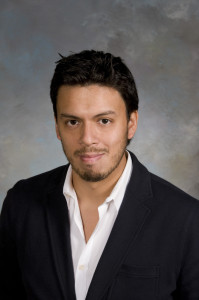
Professor of English Antonio Barrenechea
Antonio Barrenechea, Professor of English, recently presented “Fear and Loathing in São Paulo: Trash Metaphysics in the Cinema of Jose Mojica Marins” at the Literature/Film Association’s annual conference, entitled “Reboot Repurpose Recycle” this year and held in Portland, Oregon.







